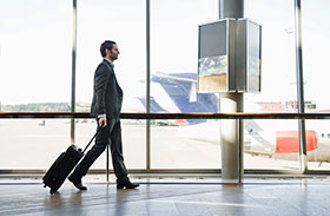
Geneva - The International Air Transport Association (IATA) responded to a statement from the Director General of the World Health Organization at the conclusion of the 15th meeting of the International Health Regulations, in which he declared that COVID was no longer a public health emergency of international concern (PHEIC).
IATA Deputy Director-General Conrad Clifford said:
“It is good news that the WHO has formally recognized that COVID no longer represents a public health emergency of international concern. Recent decisions, for example by the Chinese and US governments to relax the last remaining COVID restrictions on travel, are evidence that the world is doing its best to get back to normal. But it is important that we never forget what a terrible disaster the pandemic has been. Most of all it was a tragedy for families that lost loved ones, but it has also been an economic and social disaster on a scale and with consequences that still remain to be properly understood. That is why it is so important to learn the lessons of this pandemic to make sure that we are better prepared to manage future health emergencies with much less destruction of lives and livelihoods.
From a travel perspective, we know that the lack of scientific basis, consistency or clear communication of the restrictions brought in by governments meant that many of them had little impact on the spread of the virus, but exacerbated the misery caused to millions of people who could no longer visit their families or pursue their business. And for aviation, that meant millions of jobs at risk and global air connectivity set back by years. Therefore, it is important governments heed the lessons from COVID – what worked, and what didn’t work. Decisions taken during the next global public health emergency should be consistent, grounded in science, risk-assessed, and well communicated.
Equally, recognizing the vital role that aviation has played in ensuring the movement of vaccines, medicines, equipment and medical professionals, governments should make all efforts to maintain global air connectivity and supply chains and to designate aviation personnel as key workers rather than being subject to harsh quarantine restrictions.
Better preparedness will require more effective collaboration, for example between governments and industry and between aviation and health sectors. IATA is committed to working with global partners, including the WHO and ICAO, to implement new best practices and guidance, and ensure a more resilient and successful approach to managing and safeguarding public health and wellbeing in future years.”
For more information, please contact:
Corporate Communications
Tel: +41 22 770 2967
Email: corpcomms@iata.org
Notes for Editors:
- IATA (International Air Transport Association) represents some 300 airlines comprising 83% of global air traffic.
- You can follow us at twitter.com/iata for announcements, policy positions, and other useful industry information.